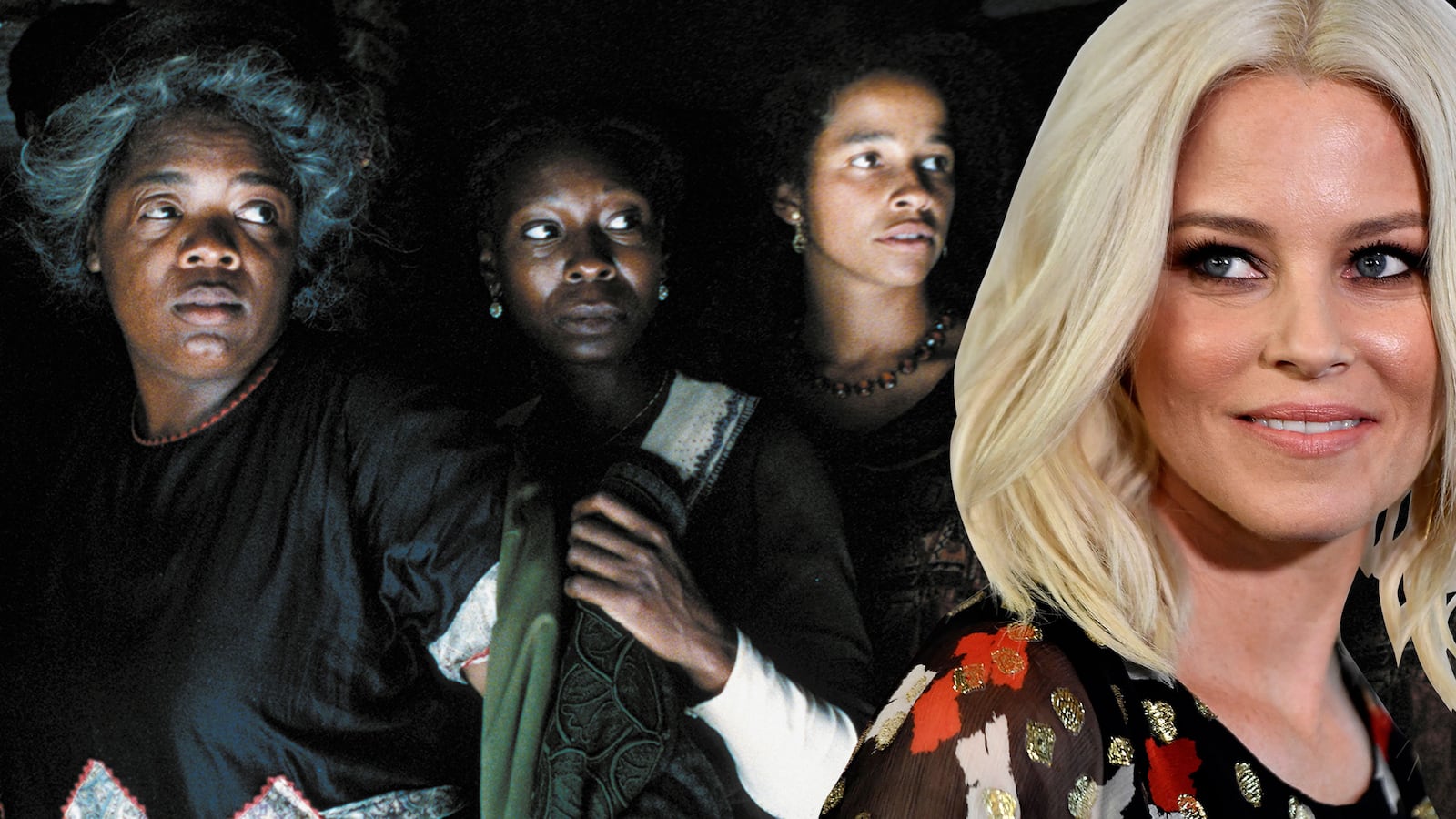Let’s hope Miss Celie hasn’t put a curse on Elizabeth Banks this week.
At the annual Crystal + Lucy Awards, an awards ceremony thrown by Women in Film Los Angeles, Banks was the recipient of the Excellence in Film Award. She used her speech to discuss gender equality in Hollywood and specifically called out director Steven Spielberg for an assumed lack of films starring women: “We can’t do it by ourselves. We need dudes. We need the guys. It’s our responsibility to bring the men along. I went to Indiana Jones and Jaws and every movie Steven Spielberg ever made, and by the way, he’s never made a movie with a female lead. Sorry, Steven. I don’t mean to call your ass out, but it’s true.”
This prompted audience member and actress Shari Belafonte to call attention to Spielberg’s 1985 adaptation of Alice Walker’s novel The Color Purple. Banks quickly corrected herself until another audience member claimed he didn’t direct it, so she moved on with her speech. When news of the speech reached social media, Banks found herself the subject of a roast for omitting one of Spielberg’s more popular films.
Did Banks go to the Sam Smith School of Cinema? It’s a new trend for celebrities to give speeches calling out diversity, but much like Smith assumed he was the first openly gay man to win an Oscar, these celebrities never seem to fact-check anything before it comes out of their mouths. To be fair, Banks wasn’t the only person being roasted. In a since-deleted tweet, IndieWire editor-at-large Anne Thompson went to bat for Banks and claimed the film was one of Spielberg’s few flops. Thompson was quickly called to task for ignoring The Color Purple’s nearly $100 million domestic gross (more than that of Schindler’s List) and 11 Oscar nominations. Most jokes were directed at Thompson on social media for claiming The Color Purple was a flop, but there were still plenty who dragged Banks for skipping over the film in her quest to make a point about diversity in film.
Which is not to say that Banks was entirely wrong. Spielberg has not made many films with women as the leads, making The Sugarland Express and The BFG the other two, but it’s not hard to see why leaving The Color Purple out of the conversation was seen as part of a systemic erasure of black women in conversations about gender diversity. It called to mind Patricia Arquette’s Oscar speech where she said: “To every woman who gave birth to every taxpayer and citizen of this nation, we have fought for everybody’s equal rights, it is our time to have wage equality once and for all and equal rights for women in the United States of America.” The speech was powerful, until she expounded on it backstage with: “So the truth is, even though we sort of feel like we have equal rights in America, right under the surface there are huge issues that are at play that really do affect women. And it’s time for all the women in America, and all the men that love women and all the gay people and all the people of color that we’ve all fought for to fight for us now!”
The speech blatantly ignored that people of color and gay people might include women, and that those types of women generally make less money and have more hardships in not only the industry, but in America. So it’s not hard to see why Belafonte’s interjection during Banks’ speech being dismissed drew people to fiercely defend her and The Color Purple. After all, while the film was nominated for eleven Oscars, it won none of them. There’s a pattern of The Color Purple being ignored.
So while yes, Spielberg has a problematic history when it comes to representations of women, overlooking his one film that has impacted so many black women since its release was an unfortunate gaffe—and one Banks needed to be called out for. After her mistake was made public, Banks issued an apology for her dismissal of Belafonte: “I framed my comments inaccurately. I want to be clear from the start that I take full responsibility for what I said and I’m sorry. When I made the comments, I was thinking of recent films Steven directed, it was not my intention to dismiss the import of the iconic #TheColorPurple. I made things worse by giving the impression that I was dismissing Shari Belafonte when she attempted to correct me. I spoke with Shari backstage and she was kind enough to forgive me. Those who have the privilege and honor of directing and producing films should be held to account for our mistakes, whether it’s about diversity or inaccurate statements. I’m very sorry.”
Banks’ apology was heartfelt and sincere. But since she’s made it a mission to call out Spielberg for his lack of roles starring women, the spotlight will now be on her. As a director, she has the upcoming Charlie's Angels reboot to cast and there will surely be many more films she’ll produce. Will those films include a diversity of women, or merely white women? We’ve seen enough from Hollywood actors like George Clooney who criticize Oscar diversity, but don’t make diverse films themselves. As Banks said, “we need dudes” to step up and cast women in their films. But we also need women like Banks to cast other women who don’t look like them.





